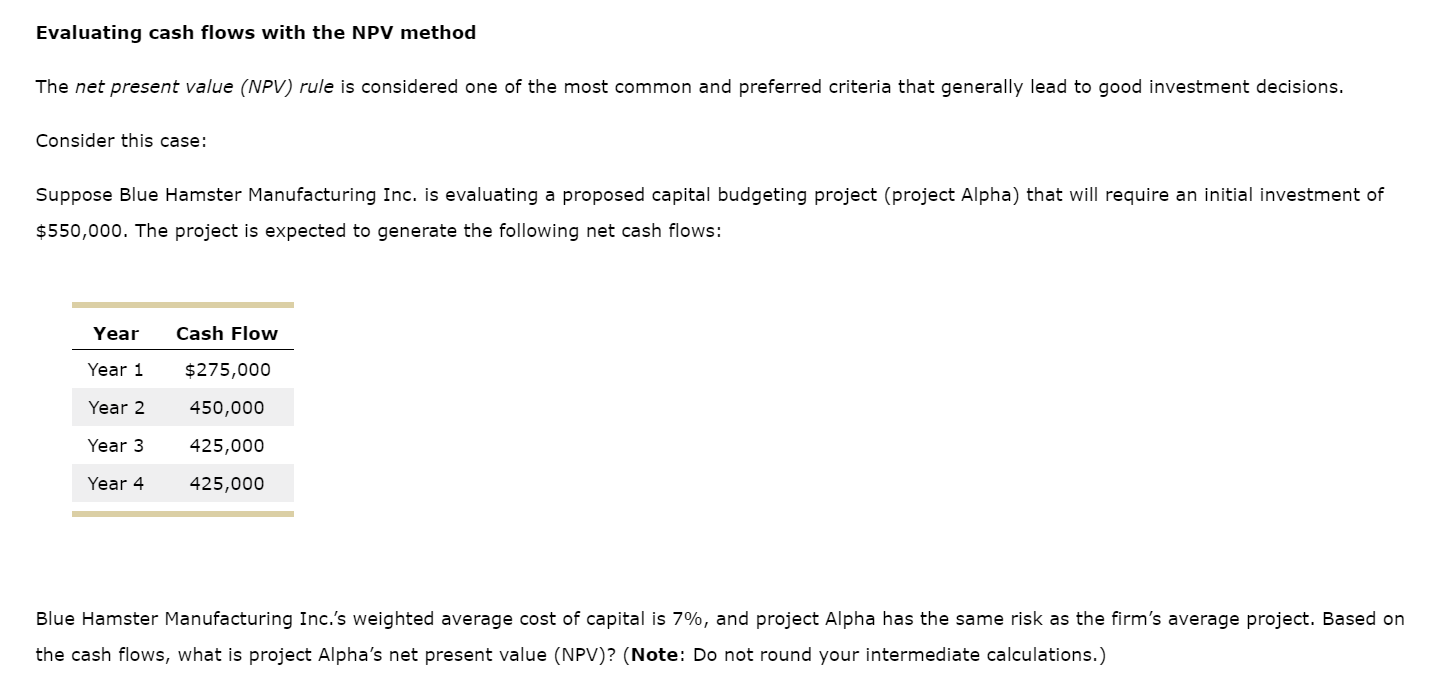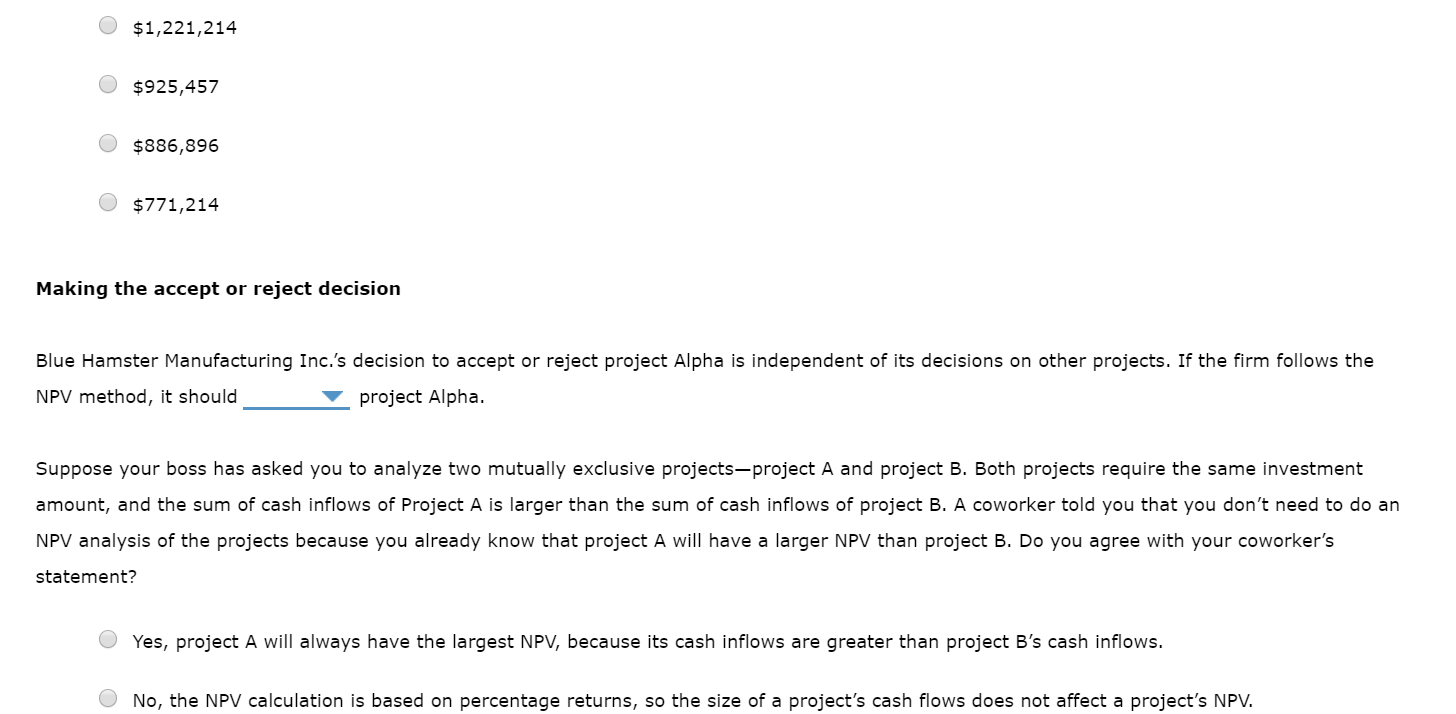Answered step by step
Verified Expert Solution
Question
1 Approved Answer
Drop down for question 2 is: [ accept or reject] Evaluating cash flows with the NPV method The net present value (NPV) rule is considered



Drop down for question 2 is: [ accept or reject]
Evaluating cash flows with the NPV method The net present value (NPV) rule is considered one of the most common and preferred criteria that generally lead to good investment decisions. Consider this case: Suppose Blue Hamster Manufacturing Inc. is evaluating a proposed capital budgeting project (project Alpha) that will require an initial investment of $550,000. The project is expected to generate the following net cash flows: Year Cash Flow Year 1 $275,000 Year 2 Year 3 Year 4 450,000 425,000 425,000 Blue Hamster Manufacturing Inc.'s weighted average cost of capital is 7%, and project Alpha has the same risk as the firm's average project. Based on the cash flows, what is project Alpha's net present value (NPV)? (Note: Do not round your intermediate calculations.) $1,221,214 $925,457 $886,896 O $771,214 Making the accept or reject decision Blue Hamster Manufacturing Inc.'s decision to accept or reject project Alpha is independent of its decisions on other projects. If the firm follows the NPV method, it should project Alpha. Suppose your boss has asked you to analyze two mutually exclusive projects-project A and project B. Both projects require the same investment amount, and the sum of cash inflows of Project A is larger than the sum of cash inflows of project B. A coworker told you that you don't need to do an NPV analysis of the projects because you already know that project A will have a larger NPV than project B. Do you agree with your coworker's statement? O Yes, project A will always have the largest NPV, because its cash inflows are greater than project B's cash inflows. O No, the NPV calculation is based on percentage returns, so the size of a project's cash flows does not affect a project's NPV. O No, the NPV calculation will take into account not only the projects' cash inflows but also the timing of cash inflows and outflows. Consequently, project B could have a larger NPV than project A, even though project A has larger cash inflowsStep by Step Solution
There are 3 Steps involved in it
Step: 1

Get Instant Access to Expert-Tailored Solutions
See step-by-step solutions with expert insights and AI powered tools for academic success
Step: 2

Step: 3

Ace Your Homework with AI
Get the answers you need in no time with our AI-driven, step-by-step assistance
Get Started


